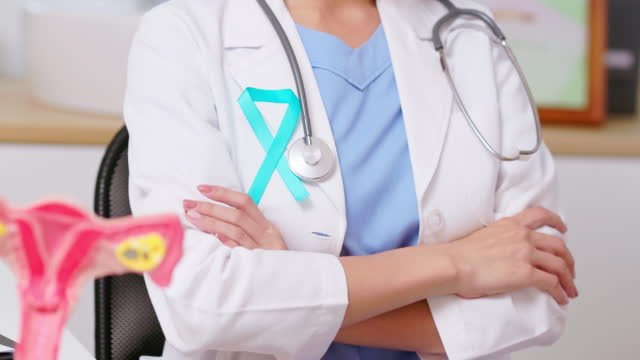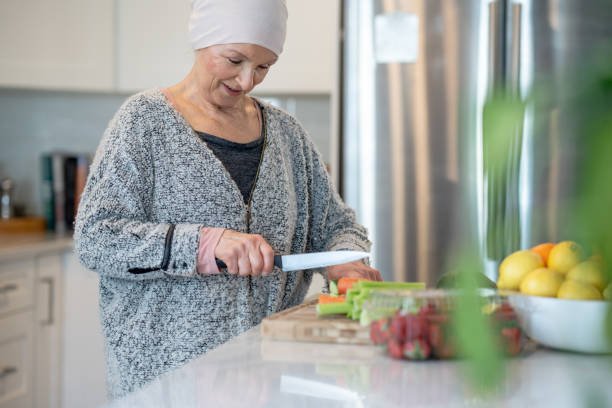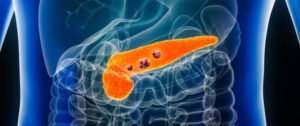
What is the Diet For Ovarian Cancer? Food Selection is Easy to Understand!
For patients with ovarian cancer, in addition to participating in the anti-cancer treatment courses prescribed by doctors, they also need to pay attention to their own diet and nutritional intake. Ovarian cancer patients who undergo chemotherapy and radiotherapy are likely to experience annoying side effects such as diarrhea. We must eat and drink healthily and try our best to keep nutrients in the body, so that we can have enough energy to resist the disease.
This article will introduce dietary recommendations for patients with ovarian cancer, and dispel myths related to cancer diet to see which foods are good for the body and mind and which are untouchable. After all, eating healthily is also a form of treatment. This way you can fight cancer and reduce the chance of recurrence.
Improve the appetite of ovarian cancer patients
Ovarian cancer patients and other cancer patients are prone to lose their appetite due to the side effects of chemotherapy and radiation therapy. In order to prevent patients from being unable to eat and suffering from nutritional imbalance, the following dietary recommendations are recommended:
- Eat small, frequent meals.
- The ingredients should be fresh.
- Eat when you have the energy, instead of forcing yourself to eat when you are tired.
- As little as possible, ovarian cancer patients should cook by themselves to avoid cooking food that is too strong or too oily, which may affect their appetite.
- Eat solid foods at meal times and add liquids at snack times to avoid feeling full.
- Eat foods with higher nutrient density first, and foods you like can also be eaten first.
- Prepare snacks and drinks first so that patients can easily obtain them so that they can easily supplement their nutrition at any time.
- You can have some appetizers and drinks before meals, such as plum juice, hibiscus tea, etc.
- You can also do moderate exercise before meals, such as taking a walk, doing stretching or yoga, to facilitate gastrointestinal motility.
- The same ingredients can be cooked in different ways to increase the freshness and increase the appetite of patients.
It is recommended to still adhere to the cooking principle of three less and one more (less oil, less salt, less sugar, and high fiber). Because high-temperature cooking such as grilling, smoking, deep-frying, and high-fire stir-frying will lead to the production of carcinogens in food, and the longer the high-temperature cooking time, the more harmful carcinogens will be produced, so be careful!

Can’t eat sugar in ovarian cancer diet, but also need to reduce carbs?
In fact, from a clinical perspective, one-third of cancer patients die due to malnutrition, which causes a weakened immune system and leads to infection. Therefore, the key point is not to ask patients with ovarian cancer to completely avoid sugary foods or carbohydrates, but to have a balanced intake of all nutritional sources, including protein, fat, fruits and vegetables, etc.
Therefore, cancer patients should eat a balanced diet, obtain enough calories, and maintain a certain weight. During cancer treatment, you should also pay attention to changes in diet and weight. A good nutritional status will enhance the effect of the treatment. Eating too much sugary or starchy food will not directly cause cancer, but may easily lead to chronic diseases such as obesity and diabetes, thereby increasing the risk of ovarian cancer or other cancers.
Therefore, it is very important to take in a balanced intake of different and diverse nutrients. Don’t listen to the rumors: “Chicken, duck, and seafood are poisonous and should not be eaten” or “Bamboo shoots, leeks, and taro will cause incomplete wound healing, so do not eat them.” Among the above-mentioned ingredients , the former is rich in protein and the latter is high in fiber, both are actually very beneficial!
Keep an ovarian cancer food diary to help with treatment and tracking
Patients with ovarian cancer should write down what they eat at each meal and the symptoms they experience that day so they can track it later. In this way, doctors or nutritionists can provide appropriate dietary advice based on this information, and provide necessary medications and treatments before symptoms worsen.

Ovarian cancer patients should always replenish water
Side effects such as diarrhea and vomiting that are easy to occur after chemotherapy may cause dehydration of the body, so we must always pay attention to the water intake of cancer patients and ovarian cancer patients. Common symptoms include: dry mouth, sunken eyes, decreased urine output, and dry eyes due to lack of tear moisture. To avoid dehydration, it’s important to drink plenty of water.
If drinking plain water feels “too boring” without taste, you can add fresh fruit, such as lemon slices, to the drinking water for flavoring. There are rumors that lemons can cure cancer, but drinking more lemon water not only cannot cure cancer, but also cannot change the pH value of our body. Drinking too much may not only hurt your stomach because of the acidic substances contained in lemons, but may also cause acid erosion of tooth enamel, so everything should be done in moderation.
6 dietary tips to prevent ovarian cancer
According to research, there is no direct impact between the causes of ovarian cancer and diet. But according to research, being overweight, eating too much fats and oils, and eating too little vegetables and fruits can also promote the formation of these cancers. We still need to grasp the following 6 factors so that we will not get the disease through the mouth.

- Balanced diet
A balanced diet is equally important for ovarian cancer patients and women who want to prevent ovarian cancer. In this way, we can absorb diverse and rich nutrients, and of course we will be healthier - Maintain weight and avoid obesity
The University of Manchester analyzed more than 100 reports from 1966 to 2007, analyzing 282,137 cancer cases and 20 different cancers, and found that the BMI (Body Mass Index) was too high. , is indeed related to the incidence of cancer. Therefore, obesity and being overweight are indeed risk factors that increase the risk of various cancers, including ovarian cancer. This is why we have repeatedly emphasized the importance of a balanced diet. - Eat more fruits and vegetables
Women who consumed high amounts of cruciferous vegetables (e.g., kale, broccoli, radishes) had an 11% lower risk of ovarian cancer compared with women who ate low amounts of cruciferous vegetables. - Juice cannot replace fruits and vegetables
In recent years, scholars in the United States have advocated eating “ten servings” of fruits and vegetables every day to prevent cancer. You can eat two servings of vegetables at three meals, and two servings of fruit at lunch and dinner, which can reach ten servings a day. Of course, patients with ovarian cancer can also try it. You can also drink it as “fruit and vegetable juice”.
However, many people who drink fruit and vegetable juice will filter out the fiber in order to pay attention to the taste. In this way, the precious nutrients contained in the fiber are also removed. Therefore, please remember that the nutritional content and nutritional value of fruit juice are still far less than that of fresh fruits and vegetables. Therefore, if you want to absorb sufficient vitamins, minerals and other “phytochemicals” with health-care effects in fruits and vegetables, juice cannot replace vegetables and fruits. - It is better to abstain from alcohol
Cancer patients whose disease is under control are more likely to have cancer relapse if they start drinking alcohol. Many epidemiological studies and animal experimental evidence have confirmed that acetaldehyde produced through alcohol metabolism is a carcinogen of alcohol. The International Agency for Research on Cancer (IARC) also identifies it as a first-level carcinogen. Whether you are affected by cancer or not, not drinking alcohol is the best option. - Eat less red meat and processed meat too
The World Health Organization (WHO) lists processed meats, such as bacon, sausage, ham and hot dogs, as “Grade 1 carcinogens”, which means they have significant carcinogenic effects on the human body. Red meat (beef, pork, horsemeat and mutton) is classified as “Class 2A”, which means it is “probably” carcinogenic to humans.
Therefore, the proportion of our diet is still based on natural, unprocessed white meat (fish, chicken, goose, duck) or other seafood. The proportion of red meat should be reduced as much as possible, and processed meat should be avoided if possible.












